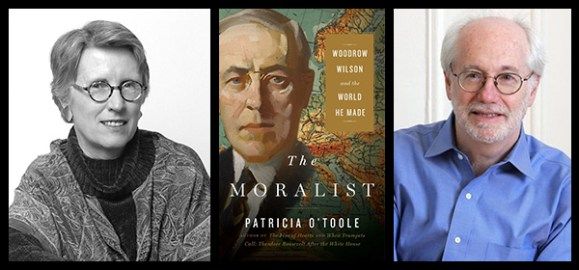Please join us at Roosevelt House as we welcome acclaimed historian Patricia O’Toole and mark the publication of her already acclaimed new book, The Moralist: Woodrow Wilson and the World He Made. O’Toole, the prize-winning biographer of Theodore Roosevelt and Henry Adams, will be in conversation with David Nasaw, the Arthur M. Schlesinger, Jr. Professor of History at CUNY Graduate Center and the author of The Patriarch: The Remarkable Life and Turbulent Times of Joseph P. Kennedy, among other books.
O’Toole and Nasaw will discuss the life and legacy of one of the most high-minded, consequential, and controversial U. S. presidents, and explore O’Toole’s argument that the Wilson presidency offers a cautionary tale about the perils of moral vanity and American overreach in foreign affairs. The speakers will also address the paradoxes that mark Wilson’s career: he was a progressive who enjoyed unprecedented success in leveling the economic playing field, but he was behind the times on racial equality and women’s suffrage. As a Southern boy during the Civil War, he knew the ravages of war, as president he refused to lead the country into World War I until he was convinced that Germany posed a direct threat to the United States. Once committed, he was an admirable commander-in-chief, yet he also presided over harsh suppression of political dissent, and, as president, the re-segregation of the federal government.
With Wilson’s leadership, the governments at the Paris Peace Conference in 1919 founded the League of Nations, a federation of the world’s democracies. The creation of the League, Wilson’s last great triumph, was quickly followed by two crushing blows: a paralyzing stroke and the rejection of the treaty that would have allowed the United States to join the League. Wilson’s liberal internationalism would be revived by Franklin D. Roosevelt and it shaped American foreign relations — for better and worse — for a century.
The Wall Street Journal praised The Moralist: “O’Toole does full justice to Wilson’s complexities, but it is with the coming of the war that her narrative takes on something close to Shakespearean dimensions…scrupulously balanced…elegantly crafted.”



